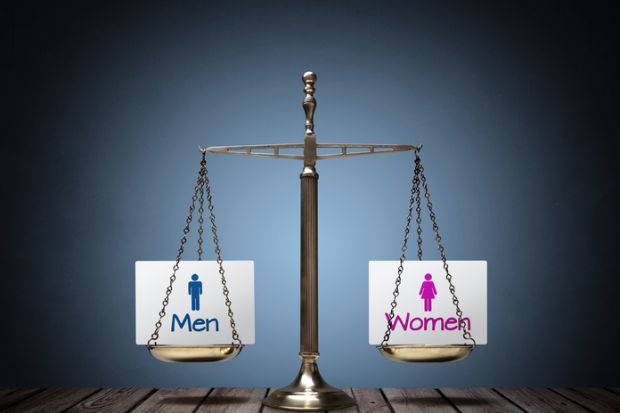The research excellence framework “actively contributes” to continued gender inequality in the higher education sector, a new study says.
A PhD thesis submitted by Emily Yarrow at Queen Mary University of London’s School of Business and Management finds that the formal processes for recruitment, promotion and the selection of readers for REF submissions were heavily influenced by informal networks – such as how good a relationship an individual has with their head of department. These practices only serve to “legitimise and further entrench existing inequalities”, she says.
Dr Yarrow, now a teaching fellow and researcher at University of Edinburgh Business School, conducted interviews with 80 individuals at an unnamed research-intensive university in the UK.
“The REF...contribute[s] to the maintenance of gendered inequality regimes…because of its implicit reliance on informal networks [to] recruit panel members and, within the university, REF submission readers,” the thesis states. “Whilst the policies and stages of recruitment are transparent, the final decisions that are made, and how these are arrived at, are not. Some women who may not be as well networked or have as good a relationship with the head of department may therefore be at a disadvantage.”
The thesis says that research evaluation contributed to “increasingly individualised ways of working”.
Dr Yarrow told Times Higher Education that advantages such as increased career mobility and financial gain from REF inclusion serve to encourage this “more individual way of working”, which contributes to the proliferation of these informal practices.
“The REF was never designed to evaluate individual submissions, but it values what I would deem increased individualised ways of working,” she said.
Dr Yarrow argued that even after female academics had passed hurdles to be able to participate in the REF, discrimination occurred when work is being assessed.
She recalled that one of her interviewees, who sat on a REF panel, told her that “before they sit down, the panel pretty much know exactly who they want”.
“Basically, the men all go to the toilet together, agree on who they’re going to select and that’s what happens,” she said. “There’s a real disparity between what’s happening on paper – all above board – and what’s occurring in practice.
“Gendered networks are affecting women – men like to socialise together and help each other. Also, because of the time that women are taking out of careers – maternity leave but also other caring responsibilities – they are more typically away from the workplace, which affects networking.”
Such factors also affect “women’s ability to travel to, say, international conferences”, Dr Yarrow said.




